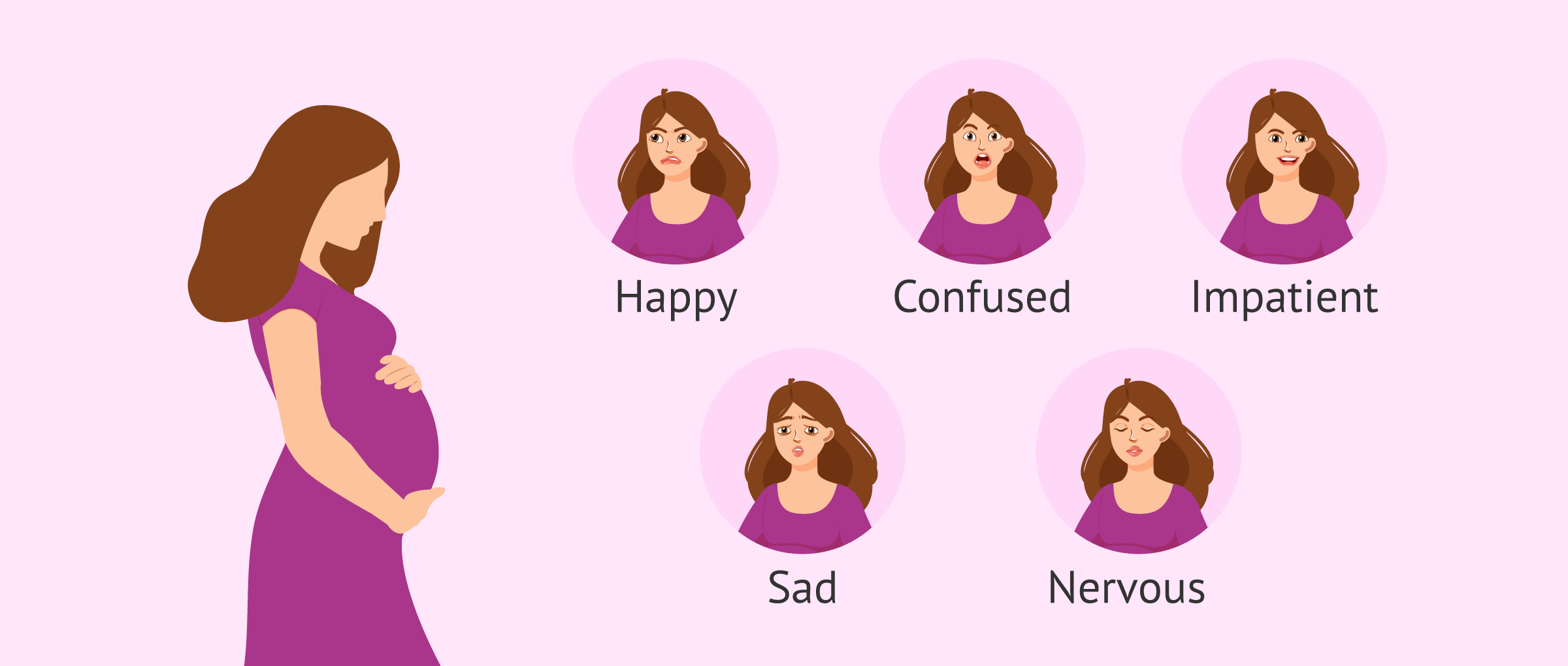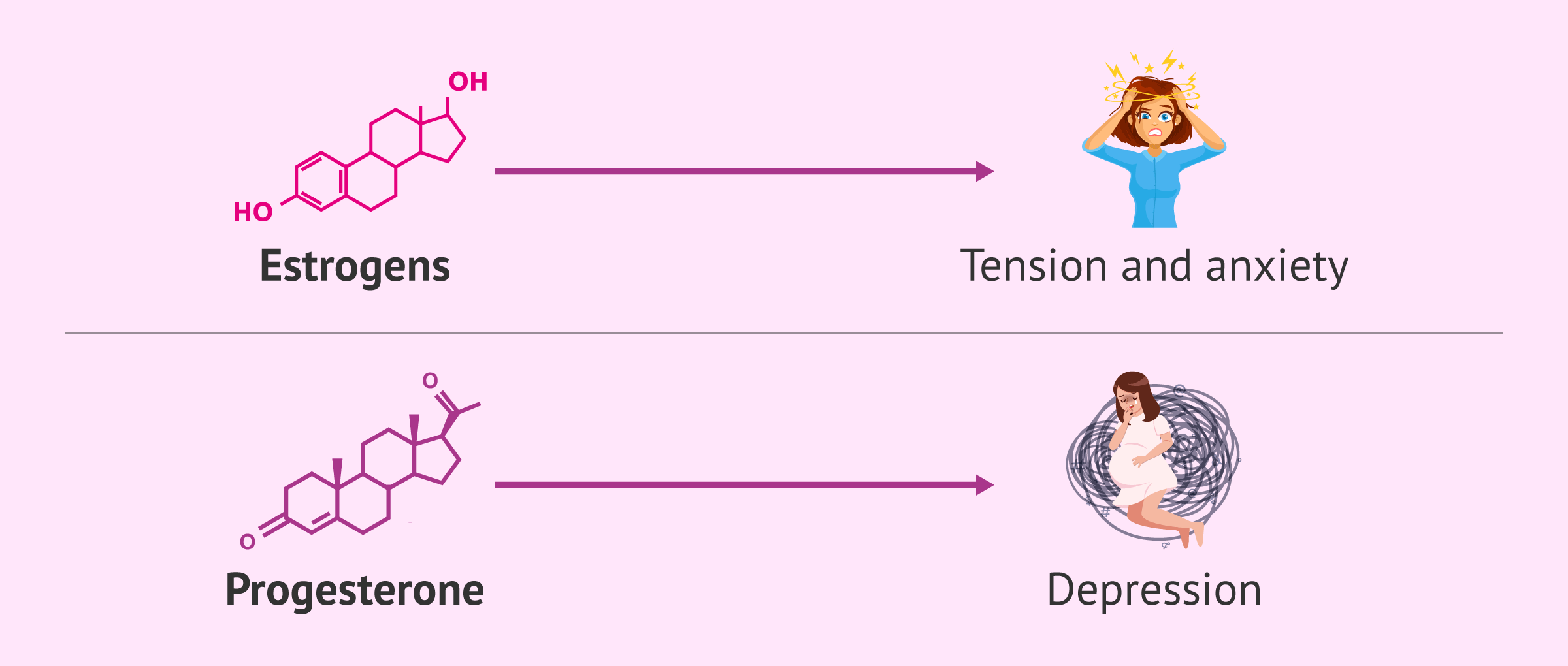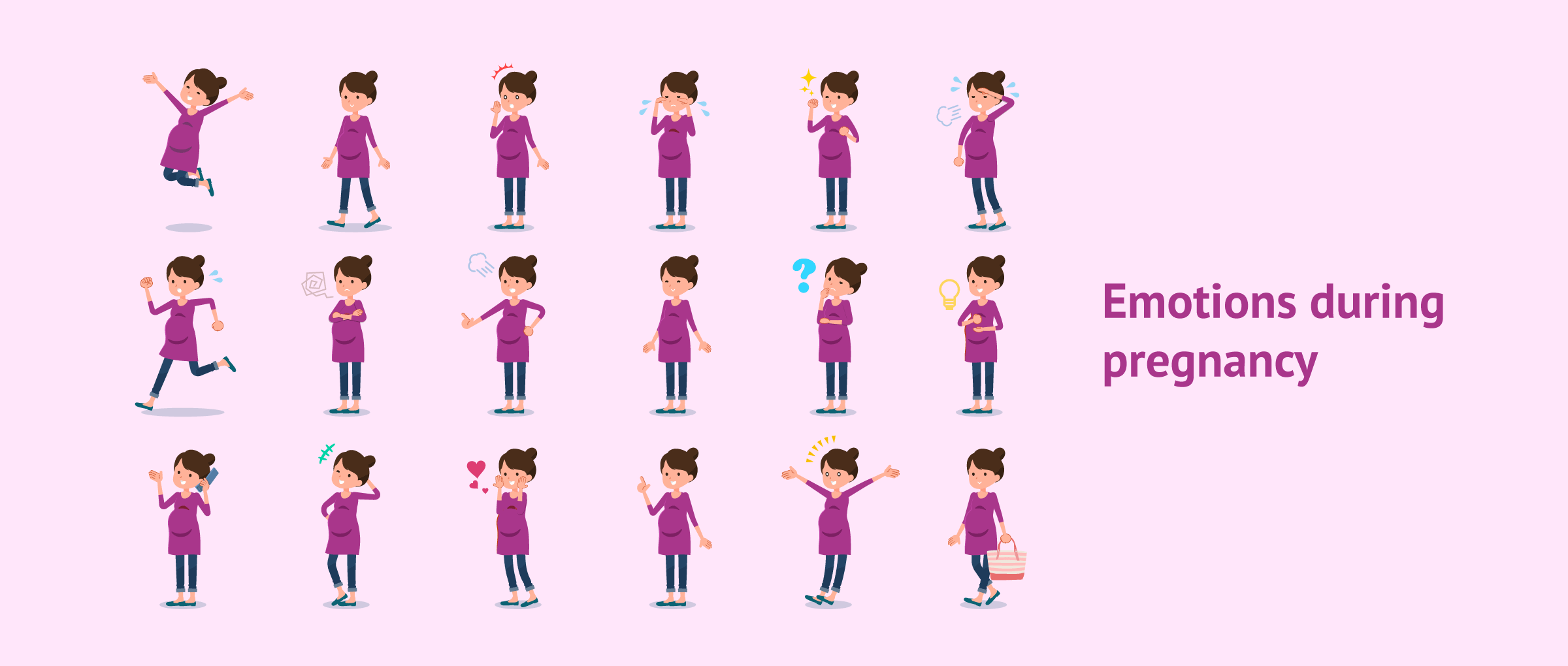Pregnancy is an emotionally challenging stage characterized by an imbalance in usual hormone levels, which can cause mood swings in women.
Throughout pregnancy, there are quite evident physical changes, but also psychological ones. The mother’s emotional health during pregnancy is very important, as it influences the baby’s development. However, it must be clear that most emotional changes during pregnancy are temporary and completely normal.
Therefore, this article details the most frequent emotions in each trimester of pregnancy, although there may be differences from one woman to another.
Provided below is an index with the 6 points we are going to expand on in this article.
- 1.
- 1.1.
- 2.
- 2.1.
- 2.2.
- 2.3.
- 3.
- 3.1.
- 3.2.
- 4.
- 5.
- 6.
Mother’s emotional health
During pregnancy, it is common for a woman’s mood to change unexpectedly and without apparent justification. Joy, sadness, anxiety, and calmness are some of the feelings that mix throughout the day.
The fetus is connected to the mother and receives the substances produced in the maternal body as a consequence of these emotional changes. Although there is no scientific evidence that mood directly affects the baby, it is known that in some way the baby perceives everything happening to the mother during pregnancy.
Inside the womb, the baby already needs to feel loved and wanted, and if it perceives positive thoughts, it will become a more extroverted person, with greater self-esteem and self-confidence. A stress-free, anxiety-free, happy mother, with a healthy lifestyle and emotional stability, will have a calm and healthy baby filled with positive values.
Especially from the fifth month onwards, everything that happens to the pregnant woman—her emotions, her feelings, and, in general, her mood—will affect the baby even after birth. Therefore, it is very important to avoid mood swings and maintain a healthy emotional state not only during the nine months of pregnancy but also after childbirth.
Mood swings during pregnancy
Especially during the first and third trimesters, it is common for pregnant women’s moods to change suddenly. The main reason for these abrupt mood swings is the hormonal imbalance.
During pregnancy, there is a stronger hormonal release than usual, and hormones affect neurotransmitter levels. These are the brain’s “messengers” responsible for regulating mood:
- Estrogen is a neurostimulant. Therefore, an excess may cause tension and anxiety.
- Progesterone has a relaxing effect, so an excess may cause drops in mood, such as depression.
Although most mood swings during pregnancy are due to hormonal changes, psychological factors can also play a role. For this reason, seeking emotional support and sharing concerns with close ones can help improve mood, as well as practicing sports.
Emotions during pregnancy
As mentioned, due to hormonal influence throughout pregnancy, it is normal for women to experience different moods and easily change emotions during gestation.
Each trimester of pregnancy is marked by significant physical and emotional changes. Below, each one is described.
Emotions in the first trimester of pregnancy
During the first three months, a woman may go through moments of happiness and sadness. Knowing she is pregnant and confirming the pregnancy in the first ultrasound often brings joy.
However, doubts about body changes or concerns about the baby’s health are also common in the first trimester. During this period, most women wonder if they will be good mothers, leading to a wave of doubts and fears.
In addition, nausea, fatigue, and other symptoms are quite common during the first trimester of pregnancy. These sensations, although a natural part of the process, can significantly influence the woman’s mood.
Emotional health in the second trimester
In the second trimester of pregnancy, calm and tranquility arrive for most women. Normally, this is a period of emotional stability. Early pregnancy symptoms subside, and the woman begins to enjoy her pregnancy more. Moreover, she feels the presence of her baby, its movements, and becomes more aware that her baby is truly growing inside her womb.
From this moment on, she starts connecting with the baby and even establishing communication, which generates greater excitement for the mother. Despite the sense of well-being, she may worry about how the baby’s presence will affect her previous lifestyle and whether she will be able to adapt to the new situation.
Emotions in the third trimester of pregnancy
From the seventh month of pregnancy, the third trimester begins. This period marks the final stretch of pregnancy, and emotions of anticipation and preparation for the baby’s arrival emerge.
It is common for women to experience sleeping difficulties as well as physical discomfort due to the size of the belly. This can affect the pregnant woman’s emotional state.
The last trimester, particularly the final month, is naturally a period of great expectation. The woman may feel worry and anxiety, as well as doubts about her ability to handle the birthing process. Feelings of sadness may also arise because pregnancy is coming to an end, or even fear in case the birth does not go well.
Another common experience in the third trimester of pregnancy is the nesting syndrome. This is the urge mothers feel when they are about to give birth and want everything to be ready for the baby’s arrival.
For all these reasons, a good idea during the third trimester is to attend childbirth preparation classes. These provide information about all the steps that may generate fear in pregnant women, as well as help identify warning signs.
FAQs from users
Are there any recommendations for coping with mood changes during pregnancy?
Yes. Most mood changes during pregnancy are due to the typical hormonal imbalance at this time. However, understanding these changes and knowing how hormonal fluctuations affect emotions can help the woman become aware that this is a normal part of pregnancy.
In addition, it is advisable to express emotions and seek support from family, friends, and professionals.
What emotions does pregnancy cause?
Mood swings during pregnancy are quite common, and a woman may experience moments of euphoria, joy, sadness, etc.
It is quite easy to go from laughter to tears very quickly, and the woman may wonder why. Fears and anxiety can also arise due to the many questions running through her mind, such as whether everything will be okay, or if the discomforts she feels are normal, and so on.
Recommended readings
Some women suffer from depression after giving birth and feel especially sad and conflicted. In this regard, we recommend you read more information here: Do I Have Postpartum Depression? - Common Symptoms & Treatment.
We make a great effort to provide you with the highest quality information.
🙏 Please share this article if you liked it. 💜💜 You help us continue!
References
Atefeh Ghanbari Khanghah, Zahra Bostani Khalesi, Rad Hassanzadeh Afagh. The importance of depression during pregnancy. JBRA Assist Reprod. 2020 Oct 6;24(4):405-410. doi: 10.5935/1518-0557.20200010 (View)
Cristina Trentini, Marco Pagani, Marco Lauriola, Renata Tambelli. Neural Responses to Infant Emotions and Emotional Self-Awareness in Mothers and Fathers during Pregnancy. Int J Environ Res Public Health. 2020 May 9;17(9):3314. doi: 10.3390/ijerph17093314 (View)
Kembra L Howdeshell, Asher Ornoy. Depression and Its Treatment During Pregnancy: Overview and Highlights. Birth Defects Res. 2017 Jul 17;109(12):877-878. doi: 10.1002/bdr2.1080 (View)
Roberta Perkovic, M Tustonja, K Devic, B Kristo. Music Therapy and Mental Health in Pregnancy. Psychiatr Danub. 2021 Spring-Summer;33(Suppl 4):786-789 (View)
FAQs from users: 'Are there any recommendations for coping with mood changes during pregnancy?' and 'What emotions does pregnancy cause?'.




